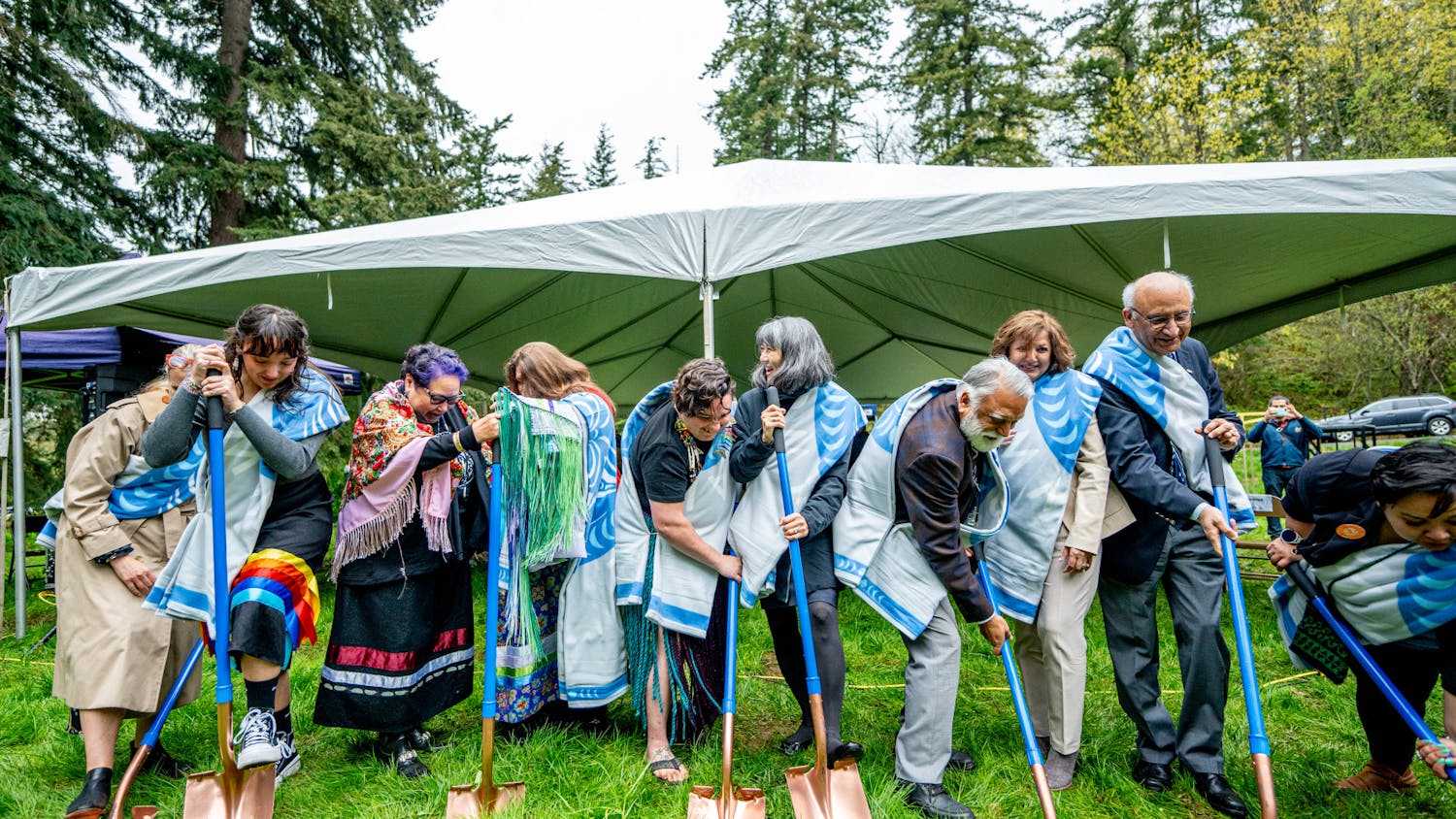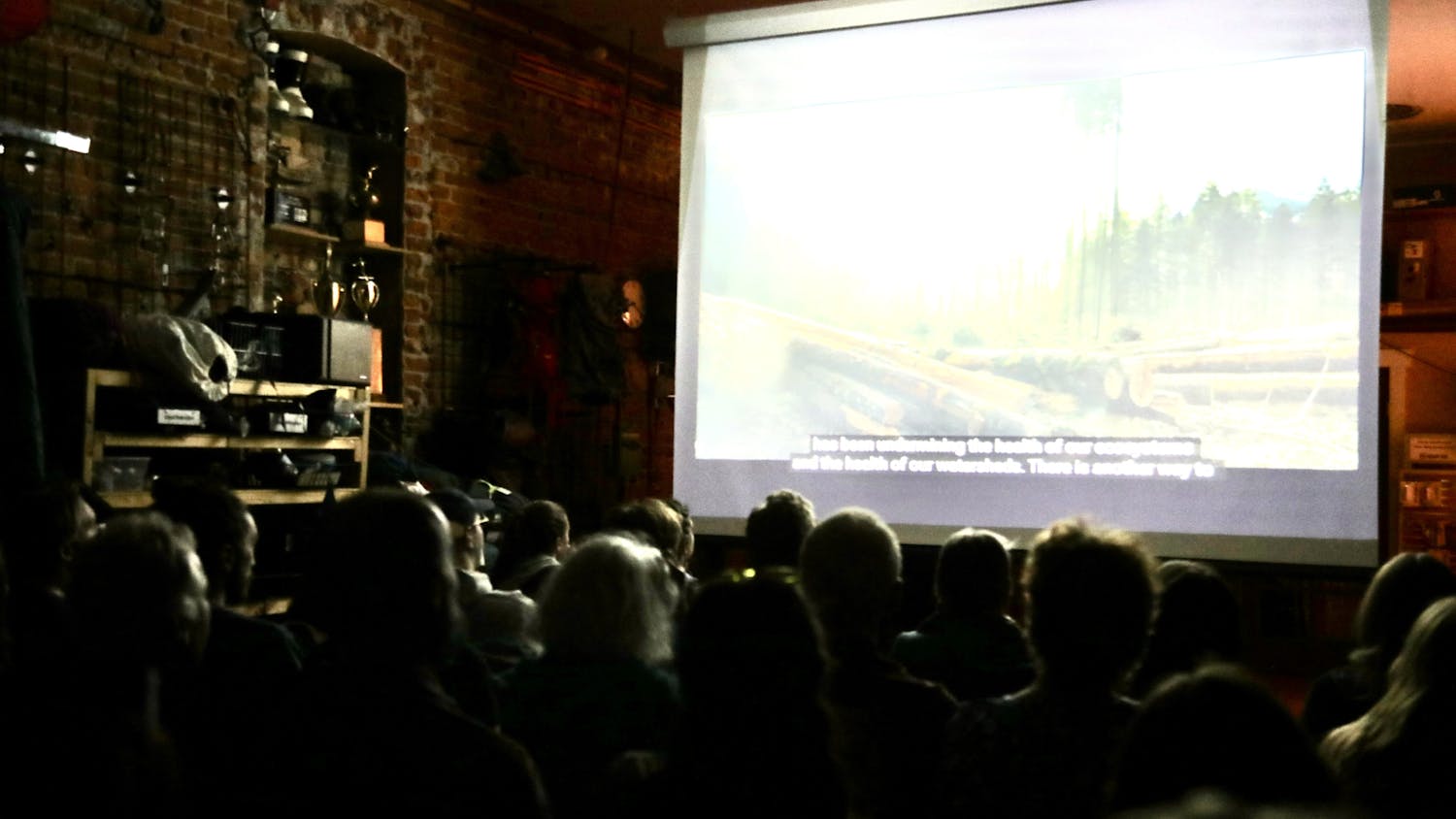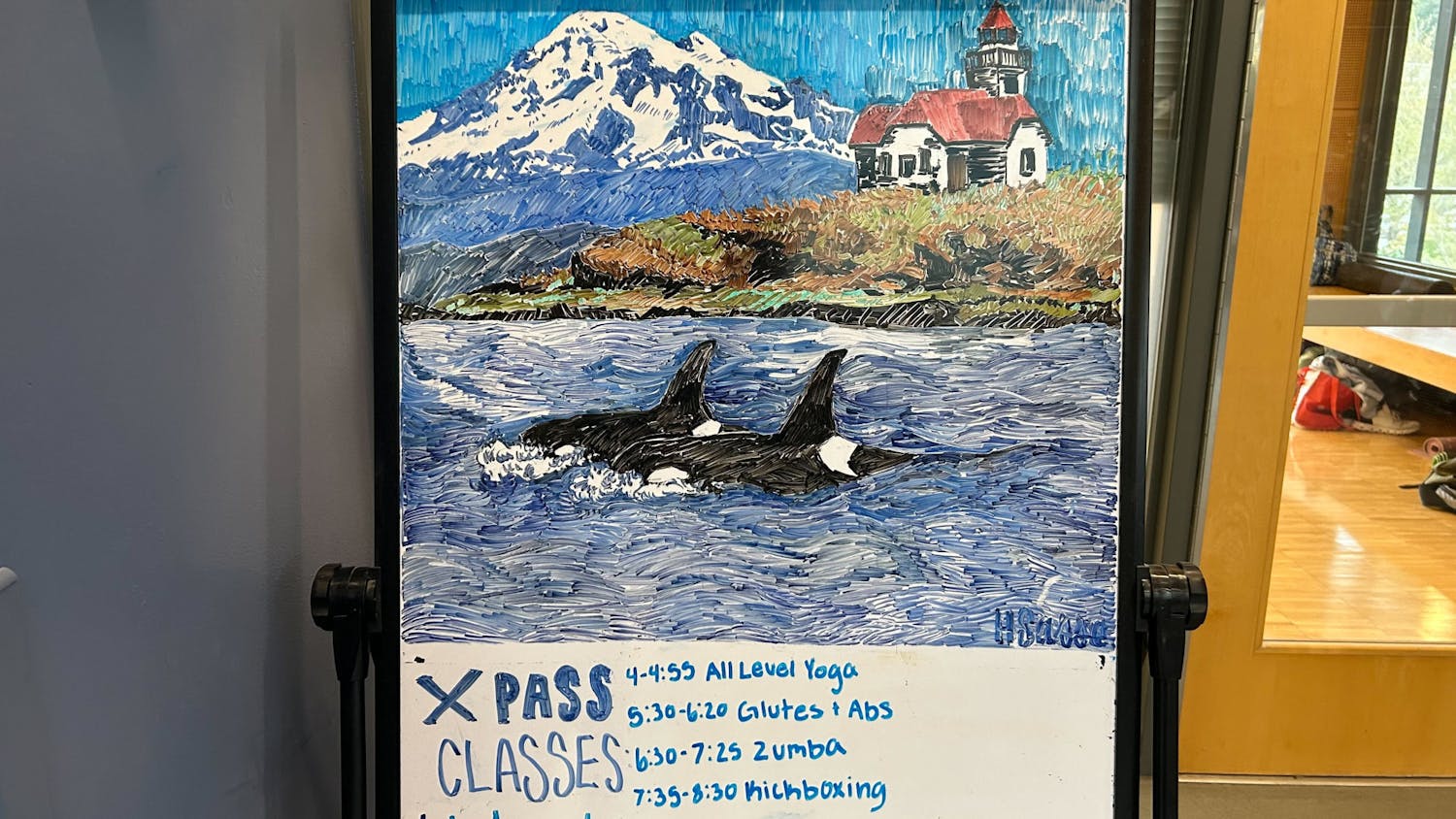Photo Illustration by Oliver Hamlin By Grace McCarthy and Western Front Staff Editor's note: This story was originally published on May 8, 2019 without including sufficient responses from Sheila Webb, Steve VanderStaay, Lizzy Ramhorst and McNeel Jantzen. The Western Front is dedicated to fair and balanced journalism, and has since updated this story with the perspectives of all sources mentioned in the original article. The Editor-In-Chief and Managing Editor apologize to its audience for publishing an incomplete story without the responses of the sources involved. A motion to remove the N-word racial slur from Western classrooms was rescinded at the April 30 Academic Coordinating Commission meeting, following concerns that it would violate legal agreements with the university and the First Amendment rights of faculty, according to meeting minutes, which were released on May 14. Kristen Larson, former Faculty Senate president and former ACC representative for the College of Science and Engineering, put forward the motion that was passed 5-3 with two abstaining votes during the ACC’s April 16 meeting, according to meeting minutes. Larson’s motion stemmed from a campus-wide conversation about academic freedom and classroom climate that began after Western anthropology instructor Paul James was reported to the Equal Opportunity Office for using the N-word slur in October 2017. James was discussing a video of a white man yelling the slur to Black passengers on a New York subway in his Introduction to Cultural Anthropology course, according to EOO documents. Larson’s rescinded motion is part of an academic freedom and inclusive learning conversation Faculty Senate has been facilitating since its Feb. 25 meeting, according to meeting minutes. ACC is a standing committee of the Faculty Senate, but the two bodies hold separate meetings. “The Academic Coordinating Commission, whose purview comprises all aspects of policy relating to the academic enterprise of the University, resolves and affirms that it is unacceptable for Western Washington University faculty to say the N-word racial slur in the classroom,” Larson’s original motion stated. Concerns about the motion’s enforceability and legal standing emerged at the April 16 ACC meeting. ACC Executive Committee members further discussed their concerns at a meeting on April 23. The Executive Committee is comprised of ACC Chair Sheila Webb, Vice Chair Phil Thompson, Vice Provost for Undergraduate Education Steven VanderStaay, Associated Students Vice President for Academic Affairs and AS Student Senate Pro-Tempore Levi Eckman, and non-voting Parliamentarian Lizzy Ramhorst. Attendance and minutes are not recorded during the ACC Executive Committee meetings, Ramhorst said. While the ACC and Faculty Senate can encourage inclusivity in the classroom, they don’t have the authority to enforce what faculty can or can’t say in the classroom, Webb said. “It’s important to have clarity in order to make it enforceable,” Ramhorst said of the motion to ban racial slurs in the classroom. “... Unless you have it clearly inscribed either in policy somewhere or in another kind of document with that directive included in the motion, it becomes impossible to put it into practice in a manner that is legally transparent.” VanderStaay said he initiated an informal meeting with Assistant Attorney General Melissa Nelson on April 24 to discuss the motion’s viability. VanderStaay said in an interview he had never dealt with a motion where he was unsure of its legal ramifications, although he consults the AAG a few times per year regarding other legal questions that arise. “Any individual on a committee can put forward any motion, essentially, regardless of whether or not it's legal,” Ramhorst said. “But as an organization it's not possible to take action that is in conflict with the law.” The AAG has the final say to determine if a proposal is legal, Faculty Senate President McNeel Jantzen said in an interview with The Western Front about the process of rescinding Larson’s motion. “We have stated numerous times on the record, off the record, in every way, shape and form that we completely condemn racism and discrimination in every way, shape and form on this campus,” Jantzen said when asked what the Faculty Senate’s stance is on racism in the classroom. During the April 30 ACC meeting, VanderStaay reported that the AAG had concerns that the motion would appear to violate academic freedom in the Collective Bargaining Agreement with the United Faculty of Western Washington, a contract that protects the rights of Western faculty. Academic freedom would be violated because the motion implies discipline or restraint regarding free speech, a right that faculty maintain as citizens, VanderStaay said during the meeting. Eckman, who was not present at the April 23 ACC Executive Committee meeting, said following his absence at the meeting, he asked for information on what was discussed, which he never received. As a result, Eckman said he never knew there was discussion of the motion’s viability in a meeting between Vanderstaay and AAG Nelson. “I was told had I been at [the ACC Executive Committee meeting,] I would have heard about [the VanderStaay] meeting, but I was not invited to the AAG meeting,” Eckman said in a written statement to The Western Front. Eckman also said it was surprising that Larson was not informed of the discussion of the legality of her proposed motion. “I was at least under the impression that Kristen was given a heads up that this was happening,” Eckman said. “She received nothing and I think that is really unprofessional.” VanderStaay said although it’s not standard procedure, he wished he had let Larson know about the AAG meeting results prior to the April 30 ACC meeting, as doing so would have been more collegial. “My frustration is that the executive board of the Academic Coordinating Commission made the decision to bring this up for a vote but did not give us prior notice about it,” Nicole Ballard, AS student senator at-large, said. At the May 20 Faculty Senate meeting, Webb said no other prior notice was necessary regarding the rescinding of the motion. “No one has any right ahead of anyone else to be informed, and all of the commissioners were informed at the same time of what the problems were,” Webb said. The approval of minutes for the April 16 ACC meeting, when Larson’s motion was passed, was listed as a line item on the April 30 agenda. However, the minutes were not available for the April 30 meeting due to the departure of a staff member who had recorded the meeting. The April 16 and April 30 minutes were approved during the May 14 ACC meeting, after Larson’s motion was rescinded. Webb recommended that the committee rescind the motion during the April 30 meeting but welcomed an amendment or alternative motion. Webb then requested that any such motion be carefully vetted for legality, according to meeting minutes. Committee members expressed interest in addressing similar issues by amending the Teaching Handbook, a teaching resources guide commissioned by the ACC, according to meeting minutes. “We don’t want faculty to be afraid or unsure how to teach about hate speech,” VanderStaay said. “Hate speech is such an important topic to many disciplines. We want faculty to know how to effectively teach about it.” Webb declined to comment on deadline for the initial version of this article by The Western Front about the rescinding of the motion. She was interviewed the following week in order to expand the Front’s reporting. “Part of the problem in the motion was there was no mechanism for action in the motion,” Webb said. “Let's say a faculty member did use the N-word in the classroom. What would happen to them?” Larson resigned in protest following the 5-4 vote to rescind the motion. One committee member abstained. Larson said she drafted the motion from concerns that nothing was going to happen to the issue after attending the April 8 Faculty Senate meeting, where a Whatcom Dispute Resolution Center representative mediated a conversation on academic freedom and the use of racial slurs in the classroom. “Do I think it was a great motion? Probably not,” Larson said. “I’m not claiming it was the be-all and end-all of motions but that’s how people in committees can keep things on the table, is to say ‘I made a motion and we’re going to talk about it.’” Eckman said he fully supports and understands Larson’s decision to resign in protest. “I don’t think students can resign in protest because if we leave, there are no student voices in the room,” Eckman said. “If a faculty member leaves, there are still other faculty in the room.” A new motion to revise the language in the Faculty Code of Ethics was passed at the May 20 Faculty Senate Meeting. The revised language, which more directly condemns racism in the classroom, will go to a faculty comment period before a final vote at the June 4 Faculty Senate meeting. If it is approved, the revisions will be sent to the United Faculty of Western Washington to be bargained with the university as part of Western's Collective Bargaining Agreement. “I think the discussion has been useful for the university and people have used it as a learning opportunity,” VanderStaay said. “That’s the goal here, that faculty continue to learn how to be better teachers and students learn.” The original article misspelled Sheila Webb's name. This article reflects the correct spelling. This article was updated on May 22 to clarify that after the faculty review period of the code revisions and the final senate vote, the motion will be passed off to the United Faculty of Western Washington to be bargained with the university in their Collective Bargaining Agreement.





